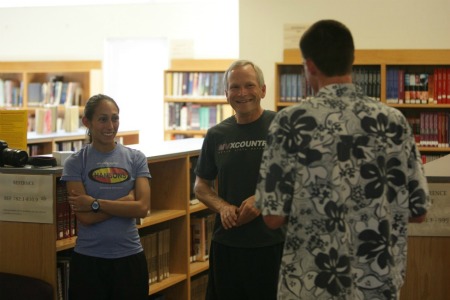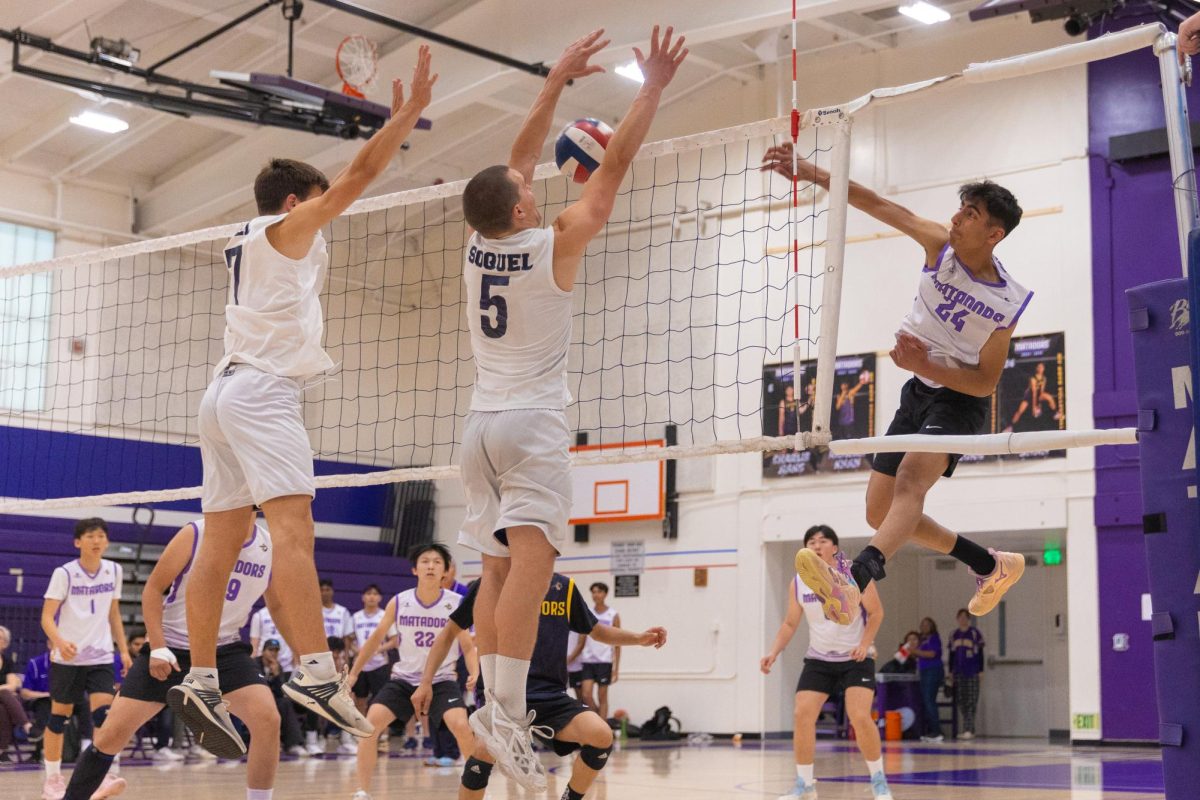
On Oct. 12, the cross country team was not running miles, but was instead gathering together in the library to meet a very special guest. Her name was Desiree Davilia, a 27-year-old athlete who finished second in the Boston Marathon — the fourth fastest marathon runner in America.
This was not the first time a professional athlete had visited the Matadors. The team’s main coach, Kirk Flatow, had invited Josh Cox, another marathon runner and close friend of his, to meet the team earlier this season. Both Cox and Davilia are currently training for the trials for the 2012 Olympic Games in London.
Aside from professional athletes, Flatow plans to introduce trainers like Bree Lambert and Russell Pate to the team too. He keeps the team updated on these guests through the team website, mvrunning.com, where team accomplishments, events and maintenance of a healthy lifestyle are also recorded. Flatow doesn’t mind taking these additional steps to help make the team feel more special. But he especially enjoys bringing professional athletes to meet his team.
“I think that [bringing professionals] can be very eye-opening and motivational,” Flatow said. “Not just for a runner, but for how you want to achieve things in life.”
Davilia’s time with the Matadors was spent recounting her experiences throughout her running career, such as the first times she faced difficulties improving and “hit the wall” and the usefulness of developing a game plan. In addition, she acknowledged her fears in the sport.
“I’m a little afraid of the final six miles [of the marathon],” Davilia said. It was the final six miles that crippled Davilia from making the cut for the Olympic marathon team in 2008.
After sharing her experiences, Davilia addressed questions the team had, including how to choose colleges that would balance time spent running and academics, how to stay positive during a race and what to eat on race day. Most importantly, she shared the importance of having motivation.
“I had another girl on my track team, Monique Henderson, as a role model in middle school,” Davilia said. Because of her stellar teammate, Davilia was motivated to train harder to improve her times.
For many cross country runners, Davilia has become their role model.
“I think it’s just cool that someone like [Davilia] would come here,” senior Pearl Law said. “Professional runners like her are just like us; she has so many goals and [she’s] so accomplished.”
In addition to meeting Davilia in the library, Law and a few other Lady Matadors joined the professional for dinner at Santana Row — Flatow likes to call it “girl power”. Davilia just hopes to share some wisdom with the girls.
“I hope they just are excited about running and look at what I’ve accomplished,” Davilia said. “I started exactly where they are … and hopefully they can accomplish something as great, if not better, than what I’m doing.”
In this sense, Flatow agrees.
“Part of my job as a high school coach is to not just teach kids how to do the sport or to win, because ultimately in our lives that’s kind of trivial,” Flatow said. “What’s more important is relating what you’re doing now to just be the best you can and continue to improve. [Running] is a kind of practice for being good at anything because it’s a lot of work, and it’s painful, and it requires a lot of self-dedication, like most important things [require] in life.”








